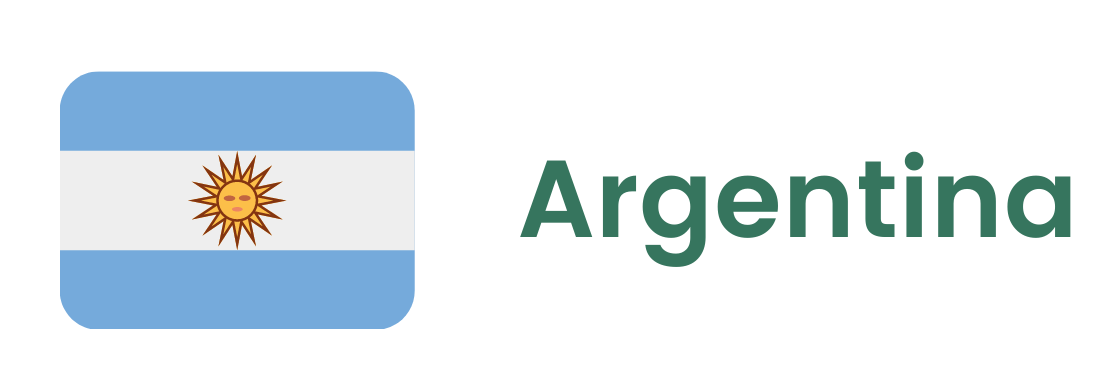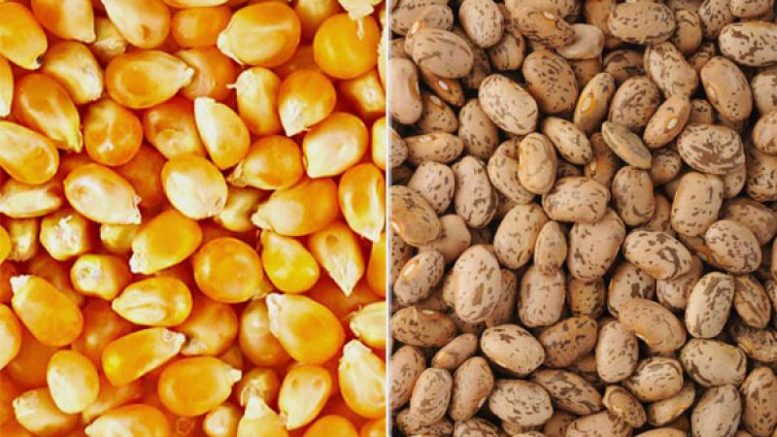Mexico Intends to Increase Corn and Beans’ Production

The country will receive a new loan of US$ 8.8 billion from the IDB and the World Bank to be allocated both to the public sector – such as social protection, primary education, fiscal management and access to essential services, and to the private sector – for renewable energy, decarbonization and mining. According to the government, US$ 2.4 billion of the funds sent by the IDB will be directed to the public sector, to improve social protection, primary education, fiscal management and access to essential services. (Government of Argentina)
Argentina’s country risk fell on 10/28 to its lowest level since mid-2019, reflecting market optimism increase. J.P. Morgan’s risk assessment, which shows the spread of bond yields relative to comparable U.S. government debt, fell 48 points to 919, while sovereign bonds increased by 1.2%. (J.P. Morgan)
Export estimates are 13.3 million tonnes of wheat for the 2024/25 season, an amount that would be the second largest on record, behind only the record of 15.4 million tonnes in the 2021/22 season. Despite the recent reduction in the production estimate, from 20.5 to 19.5 million tonnes, the exchange remains optimistic. “These 13.3 million tonnes would represent a growth of 73% compared to the current season, in which exports are estimated to reach 7.7 million tonnes (…) however, everything will depend on the final production figures, the level of domestic sales and Argentina’s competitiveness in the international market”, said the Rosario Stock Exchange. (BCR)

Mauro Mendes, governor of the State of Mato Grosso, sanctioned the law approved by the Legislative Assembly that restricts the granting of tax benefits to companies that adhere to the soybean moratorium in the state. The soybean moratorium is a 2006 agreement signed between some exporting companies, which prohibits the purchase of soybean planted in deforested areas of the Amazon, even if the deforestation occurred within the law. “Our country is sovereign and no company can violate our environmental laws, which are the most restrictive in the world. We will continue to be the largest food producer in Brazil, a reference in competitiveness, and doing all of this in a sustainable way”, declared the governor. (Government of the State of Mato Grosso)
Danone Brasil released an official statement denying the information it had had discontinued purchasing of Brazilian soybean due to environmental issues, preferring to purchase grains from Asia. The company highlighted it “continues to purchase Brazilian soybean in accordance with local and international regulations” and that its acquisition goes through origin verification and traceability processes, ensuring that the input does not come from deforested areas. (Danone Brasil)
At the UN Biodiversity Conference (COP16), the Food and Agriculture Organization of the United Nations highlighted the need to integrate agri-food systems into countries’ biodiversity strategies. “Agri-food systems are essential to addressing major challenges related to climate, biodiversity and land management”, said Kaveh Zahedi, Director of FAO’s Office of Climate Change, Biodiversity and Environment. (FAO)
In September, sugarcane yield harvested in the center-south region averaged 69.7 tonnes/ha, a drop compared to the same month in 2023, with 83.4 tonnes/ha. However, in the 1H of October, the region’s producing units showed a slight increase of 2.75% in sugarcane processing. In the 2024/25 harvest until October 16th, crushing reached 538.85 million tonnes, 2.36% more compared to the 526.43 million tonnes recorded in the same period of the previous cycle. (CTC; Unica)
Aprosoja Mato Grosso strengthens relations with China, with a commitment to reinforce partnerships and share knowledge. The meetings focused on conducting joint research on soil characteristics and climate variations that impact agricultural yield in the State of Mato Grosso. “We want to understand how climate differences between Brazil and China impact grain yield and we are open to research partnerships”, said Li Zhijia, deputy director of the Department of Agriculture of Harbin, one of China’s main grain production centers. (Aprosoja-MT)
Unemployment rate fell to 6.4% in the 3Q of 2024, the second lowest rate in the historical series. This index reflects the recovery of sectors such as Industry and Commerce, however, the agricultural sector fell by 4.7% compared to the same period in 2023, indicating challenges in the rural labor market. This is due to high mechanization and climate change, which have required innovations and new qualifications in jobs. (IBGE)
In the past 10 years, biotechnology has added 21.2 million tonnes to the country’s soybean production, a volume equivalent to the annual harvest of the State of Rio Grande do Sul. “This increase generated an economic impact of US$ 17.72 billion, leveraging several sectors and strengthening the Brazilian economy”, said André Pessôa, CEO of Agroconsult. (Agroconsult)


In September of 2024, wheat milling in the Biobío region was 12,294 tonnes, recording a decrease of 17.7% compared to the same period of the previous year, associated with the decrease in wheat products and by-products. In twelve months, the total wheat milling products were 10,003 tonnes (-6.5%), while the processing of by-products totaled 2,291 tonnes (-22.7%). (INE)

BBVA Colombia has completed the issuance of the first thematic bond with an exclusive focus on biodiversity projects in Latin America and the Caribbean. The bond totals US$ 70 million and is structured on two fronts: one of up to US$ 35 million subscribed by IDB Invest, and another of up to US$ 35 million subscribed by the International Finance Corporation. The resources will support green projects aimed at combating biodiversity loss in Colombia, including categories such as productive land use and sustainable agriculture, sustainable freshwater and marine water production, nature-based solutions, waste and plastic management, forestry and plantations, and tourism and ecotourism services. (BBVA Colombia)

The country intends to increase corn and beans’ production. “It’s about producing what we eat”, said Claudia Sheinbaum, Mexico’s president. The goal is to replicate the model of the 80’s, when food production and distribution in the country were more competitive. For 2024, production is estimated at 25.5 million tonnes of corn. However, the country is expected to still need to import about 5 million tonnes, mainly from the US, its largest trading partner. (Government of Mexico; USDA)


Distributors and Machinery Chamber has warned about the negative impact of the growing import of used agricultural machinery, which fell by 26.3% in September, affecting sales of new equipment. Cadam’s vice-president, Víctor Servín, emphasized that this situation not only harms the market, but can also compromise the quality of crops by introducing new harmful insects. The phenomenon, which has emerged in the last two years, poses risks for agriculture in Paraguay, especially with the increase in equipment that carries residues from previous crops. (Cadam)
![]()
Association of Gremio Agricultural Farmers of Peru is warning about the crisis in the agriculture, affected by water shortages, insecurity and high logistical costs. Agricultural regions are suffering from water shortages due to poor management and lack of investment in infrastructure. In addition, security problems aggravate the situation, while a new charge of US$1,000 on refrigerated exports impacts the competitiveness of products. AGAP calls on the government to take joint action with the private sector to solve these structural problems and guarantee the sustainability of the sector. (AGAP)
Ministry of Economy and Finance has approved new reference prices and variable rates for imports of corn, sugar, rice and whole milk powder. Corn will have a reference price of US$ 202/ton, with a variable rate of 0; sugar will be US$ 554/ton, with a variable rate of 0; rice will have a reference of US$ 775/ton, with rates of -US$ 65 for paddy rice and -US$ 93 for polished rice; and whole milk powder will be US$ 3,807/ton, also with no variable rate. (MEF)
![]()
Minerva and Marfrig have completed a US$ 116.81 million transaction involving assets in South America. However, the companies are still facing an impasse with the Commission for the Promotion and Defense of Competition, which has once again denied an appeal for the sale to Minerva of three cattle slaughterhouses located in Colonia, Salto and San José, Uruguay. Minerva said approval was needed to complete the sale and that it is analyzing the details of the decision. The company’s operations in the country total US$ 1.29 billion. (Minerva; Coprodec)

READ MORE:

